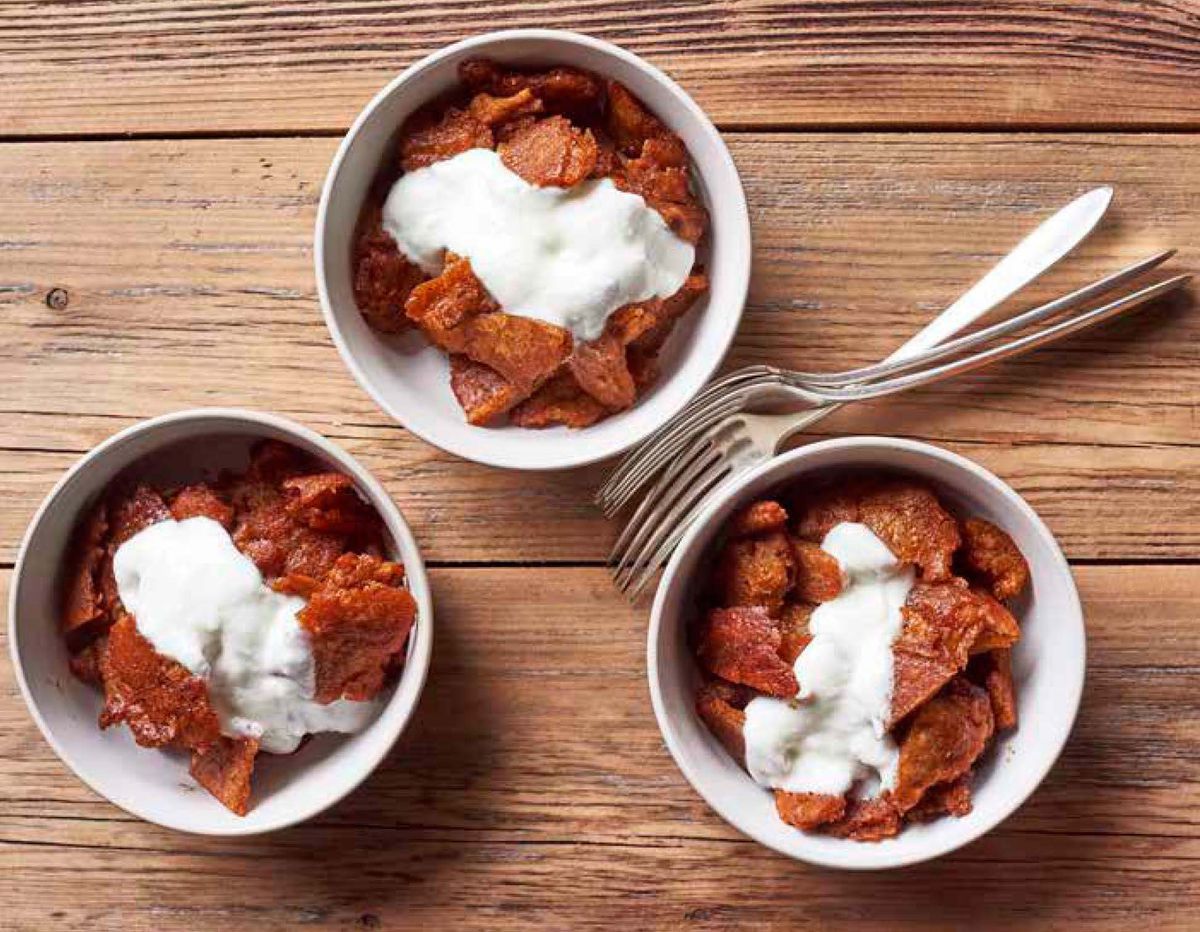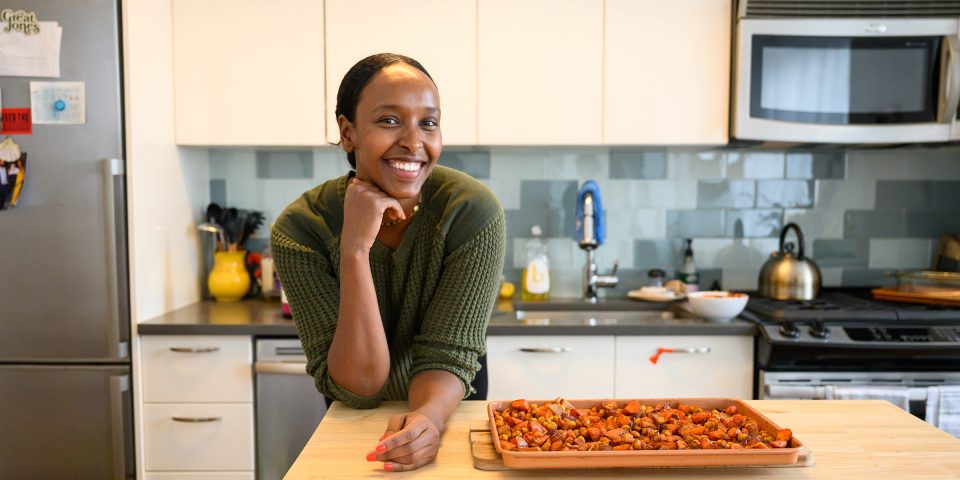Hawa Hassan roasts vegetables wit
With recipes like kicha fit fit and zanzibar pilau, ‘In Bibi’s Kitchen’ features grandmothers’ dishes from eight African countries.

RF: I imagine translating dishes that these women have been making by heart for years into a formal recipe presented some challenges—what was the recipe development process like?
HH: A lot of it was just watching videos that either I took or our photographer took and then doing the measurements from the videos and creating the recipes that way. Then a lot of it is just recipes that are from my family, like the Somalia chapter and the Eritrea chapter. It’s things that are indigenous to that country; everyone knows how to make doro wat, or shahan ful. It’s something that’s eaten all the time. A lot of that was research. And for 24 of them, we developed the recipes from the grandmothers through videos.
RF: We’re featuring the recipes for Zanzibar Pilau and Kicha Fit Fit, which call for spices like cardamom, cinnamon, cloves, paprika, fenugreek, and dried chiles. You’ve noted that the countries featured in the book create the foundation of the spice trade along the Indian Ocean, and point out the home cook’s growing interest in “global flavors,” which has been a big conversation in food media recently. Why is it important for cooks to recognize the cultures behind these ingredients?
HH: I think oftentimes in food media, in the U.S. especially, the recipe comes out first and everything else is secondary. I think it’s really interesting to not only be knowledgeable about what it is you’re cooking, but to also pay homage to the places it comes from. That sets up a wider table. It brings you a lot closer to cultures, and my intention in doing this book and anything that I do is to use food as a gateway to cultures. What better way to do that than to say, here’s berbere; let me tell you about the Indian Ocean and how these spices came to be in this country.
It’s also to educate the audience about the Indian Ocean because there’s a thread through there. You could easily relate Pakistani food to the food from Tanzania because of the settlers in Zanzibar. You could easily relate Somali food to Italian food because of Italians taking over Somalia. If you’re willing to educate yourself a little bit about what it is you’re cooking, I think that not only enriches your plate, but it enriches your entire life.
RF: What are you excited about these days? Is there anything else you’d like to share with Food52 readers?
HH: I think I’m very hopeful for what’s to come in the next year, next two years, in terms of Africa. I’m excited to see books that are going to be regional. I think Africa deserves the same attention that Asia has gotten all these years. I’m looking forward to seeing regional books from the continent. I’m looking forward to seeing up-and-coming chefs that are able to tell their own stories.

Kicha Fit Fit From Hawa Hassan With Julia Turshen
I’m really excited about growth stories. I’m excited about how everyone is going to pivot after this pandemic, in regards to the way we educate ourselves. Who’s afforded what. I hope that Food52 holds space in a way that is authentic for a larger audience. Not that you have to put that in there.



